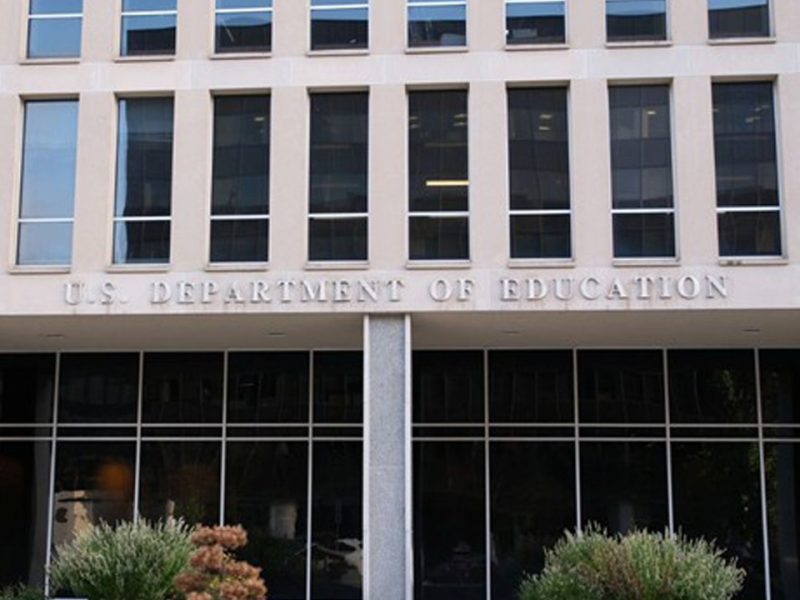Economists blast Florida sales tax holidays as gimmick with little benefit
Orlando Sentinel | By Jeffrey Schweers | April 7, 2022
TALLAHASSEE — The Legislature last monthunanimously approved $1.1 billion in tax breaks over the next two years that lawmakers say are aimed at easing the tax burden on average Floridians.
But economists across the board debunk them as politically popular, feel-good gimmicks that sidestep meaningful and lasting tax reform and provide negligible relief or savings.
Included are the popular back-to-school and hurricane prep holidays, extended to two weeks, as well as a return of the break on recreational items such as swimming pool fun noodles called “Freedom Week” starting July 1, first introduced last year, and a weeklong “tool time” tax holiday in September.
Lawmakers also approved sales tax exemptions for diapers, energy-saving appliances and impact-resistant windows and doors.
State politicians applaud those measures, as well as a month-long suspension of the state’s 26.5-cent gas tax in October, as efforts to help working families deal with soaring inflation.

Senate President Wilton Simpson, R-Trilby, said the tax breaks support ”growing families, Floridians looking to prepare their homes for severe weather, and the blue-collar working men and women of our state who are trying their best to get by.”
Economists say the primary beneficiaries are politicians.
“It makes them look good, particularly during an election year,’’ said Diane Yetter, founder of the for-profit Sales Tax Institute in Chicago.
Tax holidays make political leaders look like they’re helping their constituents, and consumers think they’re going to save lots of money, she said, but the reality is that there is no benefit to the public and it creates headaches for sellers.
They’d do better to use any surplus revenue to permanently lower the sales tax, permanently exempt essential products, or hand out tax rebates, she said.
Economists of all political stripes agree that sales tax holidays are not sound policy and avoid solving the problem of high taxes and too many fees at the state and local level, said Matthew Glans, writing for the conservative Heartland Institute.
Also, the wealthiest households are more likely to take advantage of sales tax holidays than poorer families, Glans said, pointing to a 2009 study by the University of Michigan that found wealthy households were responsible for much of the increase in computer purchases during tax holidays.
Sales tax holidays on energy-efficient products, for example, subsidize the cost of buying more expensive appliances that are also more costly to maintain and more difficult to operate.
“If these products had value in the market, they would not need a sales tax holiday to spur sales,” Glans said.
No boost for the economy
Another much-ballyhooed benefit of sales tax holidays by politicians is that they stimulate the economy. But studies show that not to be the case. Instead of buying more goods, consumers shift their spending pattern to when the sales tax holidays occur.
Retailers may also increase prices to capture savings or water down promotions to take advantage of a spike in shoppers during tax holidays, said Esteban Leonardo Santis, policy analyst with the Florida Policy Institute.
“All of this raises serious questions about how much consumers benefit from these holidays,” Santis said.
Only one in five Floridians actually take advantage of the sales tax holiday, according to a survey conducted last year, while 60% of those polled in another survey said they would skip the sales tax holidays altogether.
“In the long run, sales tax holidays leave a regressive tax system unchanged, and the benefits of these holidays for working families are minimal,” Santis said.
There also is a danger the state may lose out on the federal funds that are being used to provide tax relief.
One such tax holiday is using $200 million of American Rescue Plan Act relief money to suspend the state’s gas tax in October, a month before the general elections.
“Federal law prohibits using these funds, either directly or indirectly, to facilitate a state tax cut,” said Jared Walczak, vice president of state projects for the Tax Foundation, an independent nonprofit policy group, in a recent blog item.
“In Florida and elsewhere, a gas tax holiday may be good politics, but it is unlikely to achieve its aims,” Walczak said.
There are lots of reasons for rising fuel prices, he said: general inflation, higher transportation costs, and the loss of Russian oil because of the war in Ukraine. But high prices also force people to lower their consumption.
“If a state suspends its gas tax, some of that reduction may find its way to consumers in the form of lower prices at the pump, but even in a highly competitive market, the equilibrium price may well be higher than the tax-free price,” Walczak said.
Another way to go
Among the tax breaks is a year-long exemption on diapers, sponsored by State Rep. Anna Eskamani, D-Orlando. While she voted for the tax package, she said long-term or permanent tax exemptions are better than short-term holidays, because “when it’s long-term you can’t readjust the costs for your own benefit.”
Eskamani supports a state version of the federal Earned Income Tax Credit, which benefits 9 million people a year.
“The EITC is a much more effective way to put money back into the pockets of Floridians than short-term tax breaks,” Eskamani said.
Florida has no income tax, but lawmakers have tried for years to pass a program using federal income tax returns to provide additional credits for working families, she said.
The Florida Policy Institute says 2.1 million Florida households received $5.3billion in federal EITC refunds in 2019. But 18.3% of eligible taxpayers do not claim the credit, leaving $1.1 billion on the table each year by Floridians.
“Florida’s tax system is upside down, meaning that those with the lowest incomes are asked to pay the highest share of their income on state and local taxes,” said Holly Bullard, chief strategy and development officer for the Florida Policy Institute. “Targeted tax rebates and credits to those with the lowest income can help alleviate this.”
They also help reduce the disproportionate share of sales and excise taxes on people with low income, she said. The lowest-paid Floridians would see a 26% decrease in what they pay in taxes if such a program were in place in Florida, she said.
Another way to help average Floridians is to close the corporate tax loopholes and giveaways, Eskamani said. The state is poised to give out a $624 million corporate refund, money that could help reduce the tax burden on everyone, she said.
Florida also could use the estimated $1.5 billionin online sales tax revenue it collects to reduce taxes for all Floridians and reduce fees on basic services like driver’s licenses, she said.
There are better ways to ease the tax burden when the state has surplus revenue, Yetter said.
The city of Chicago just approved handing out gas and transit cards to residents.
Colorado law requires the state to return any surplus from its marijuana tax to all residents. And California has a provision that triggers an automatic rate decrease if revenue exceeds budget projections.
“That is a better policy than one-time rebates on a lot of different things on different days of the year,” Yetter said.
“Florida has been doing tax holidays for decades, so it’s become a recurring budget line,” Yetter said. “So why not make it permanent, and take down the sales tax by a quarter percent a year?”

Tax holidays at a glance
Here are the sales tax holidays approved this year:
BACK TO SCHOOL: A 14-day “back-to-school” tax holiday from July 25 to August 7 for certain clothing, school supplies, learning aids and puzzles, and personal computers; estimated impact: $87.6 million.
DISASTER PREP: A 14-day “disaster preparedness” holiday from May 28 through June 10 on supplies for families and their pets; estimated impact: $25.6 million.
FREEDOM WEEK: A seven-day “Freedom Week” tax holiday in July 1-7 for specified recreational items and activities; estimated impact: $70.6 million.
TOOL TIME: A seven-day “Tool Time” tax holiday in September for tools and equipment needed in skilled trades; estimated impact: $12.4 million.
WINDOWS AND DOORS: A two-year exemption for impact-resistant windows, doors, and garage doors for residential properties; estimated impact: $205 million.
CLOTHING: A one-year exemption for babies’ and children’s clothing, shoes; estimated impact $74.7 million.
ENERGY STAR: Aone-year exemption for certain ENERGY STAR certified refrigerators, refrigerator-freezer combinations, water heaters, and clothes washers and dryers; economic impact: $72 million.
DIAPERS: A one-year exemption on children’s diapers: estimated impact: $35.7 million.
EVENT TICKETS: An exemption from the sales tax on admissions to Formula One Grand Prix races, World Cup matches, and Daytona 500 events; estimated impact: $5.8 million, for Formula One, $6 million for Daytona 500.






